Shine On! Kids President Kimberly Forsythe Gives Back To Japan
From Struggle To Strength: Changing The Lives Of Others
Kimberly Forsythe is a successful voiceover artist, mother and president of an organization that redefines the concept of patient support in Japanese pediatric hospitals. What started from her family’s personal struggle has now grown to touch the lives of thousands of families and medical staff all over Japan.
Shine On! Kids is a nonprofit organization (NPO) in Japan, originally founded as the Tyler Foundation by Kimberly Forsythe and her husband in 2006. It received Nintei NPO certification from the Japanese government in 2012. Through special programs, counseling services and collaborations with healthcare professionals, Kimberly and her team bring joy, comfort and positivity to seriously ill children and their families. Savvy Tokyo sat down with Kimberly to learn more about how and why she was able to accomplish all this.
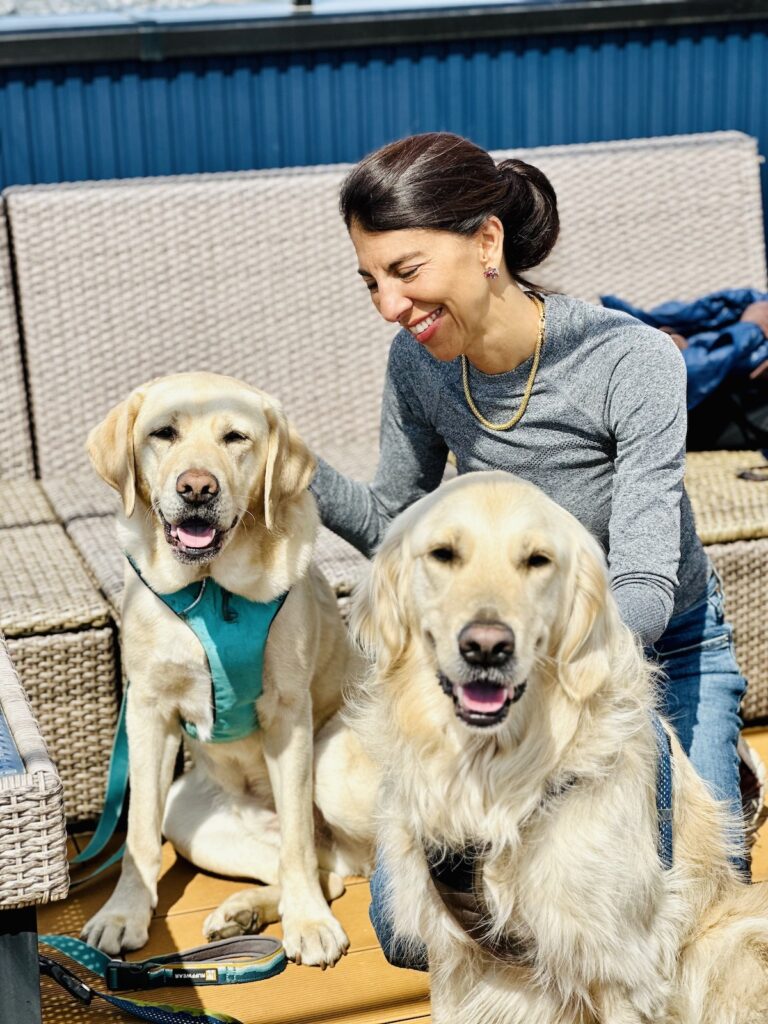 © Photo by Kimberly Forsythe
© Photo by Kimberly ForsytheWhat brought you to Japan and where are you from originally?
My father was transferred to Tokyo to set up a joint venture with a Japanese steel company. I, originally from Pittsburgh, PA, came to visit him and really never went home. I officially moved to Japan in 1990 and met my husband here in 1993. I had my daughter in 2000 and my son, Tyler, in 2003.
What has your career been like in Japan since arriving?
Although I studied systems engineering in grad school, I ended up with a very successful career as a voiceover artist—which I loved! I have done everything from documentaries, on-camera television news, InterFM and NHK radio, train announcements, car navigation, video games, Iron Chef U.S. and billions of educational recordings. You name it, anything in English, I have done it!
Do you still do voice-acting work?
I do it a little bit remotely. I do a regular program for NHK called Seasoning Seasons, some educational stuff once a week and a commercial or something here and there.
Could you tell us the story of how Shine On! Kids came to be?
My son Tyler was born in Japan. As soon as I brought him home from the hospital, I felt like something was wrong. Although others reassured me, I couldn’t wait for his one-month check-in and decided to take him back to the hospital. He was diagnosed with leukemia and hospitalized immediately. Tyler underwent very serious chemotherapy and surgeries, but through it all, was a very smiley and joyful baby. Everybody loved him.
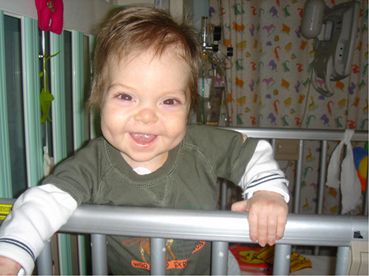 © Photo by Kimberly Forsythe
© Photo by Kimberly ForsytheHospitals are very boring, the kids have nothing to do, they can’t see their friends and they’re isolated. Most children’s hospitals have four beds in a room for patients and parents where they’re together every day—all day. Although there are good days, it’s endlessly stressful and frightening to see others suffer pain and loss around you. The medical care was great but there was nothing there to support mental health.
After two years, we lost Tyler. There was no sense to make of it. In an effort, my husband and his friends suggested we have a cricket match to raise money for the hospital. However, we couldn’t just give the hospital money, it doesn’t work like that. I talked with a doctor who asked what I wanted to do. I wanted to help the people who were going through what I had gone through those past two years. Tyler’s doctor suggested we start our own NPO; The Tyler Foundation which later became Shine On! Kids.
I wanted to help the people who were doing what I had done those past two years.
We held a fundraiser and got a lot of support from the International community but as time went on I realized there were people who needed support all over Japan. And to do that we needed to define and create processes to easily spread these programs.
How do the programs differ from what other hospital volunteer groups provide?
We decided early on that we wanted medical professionals to be executing our programs. I really wanted to create programs that were going to fundamentally support the stress that people were having, and the kid’s emotional wellness.
Were there any challenges you faced when first starting the foundation?
Starting an NPO is like starting a business. Luckily, my husband, Mark Ferris, took care of the business side of things while I got started with the program side. I did my research and went to children’s hospitals in the U.S. and Australia to see what kind of programs were working, the ones kids really loved.
However, I had to acknowledge that the medical systems and cultures of these countries are quite different to Japan. For example, when I wanted to bring a dog into a Japanese hospital back in 2008, people thought I was crazy! I presented evidence that it was safe and data to show the positive impact a facility dog could have on hospitalized children, however, it took nearly two years to finally launch the program.
Why did you decide to start an NPO in Japan instead of your home country?
Shine On! Kids is our giving back to Japan. If we were in the U.S. a bone marrow transplant isn’t paid for by insurance. The amount of money the Japanese health system supported us with, we wanted to give back and say, thank you. We’re grateful for the care and medical support we received. Everything we do is for Japan.
Shine On! Kids is our giving back to Japan.
Even though I’m in Australia now, I’m online with my team in Japan every day. I’m in Japan five, six times a year. We have a really close relationship. I mean, I lived in Japan for 22 years and all of my adult life. It really is my home, in many ways.
What advice would you give to others who wish to start an organization like Shine On! Kids in Japan?
You must really, really want to do it. Running an NPO is a labor of love and must be fed by a passion for your cause and mission. It’s not a cruisy “lifestyle” business.
What sort of programs does Shine On! Kids have and how can we help?
We have the Beads of Courage® program, something called Camp Courage for Survivors where kids who have had cancer help other kids who are going through cancer, and of course, the facility dog program—which we love. Help can be given in the form of direct donations, sponsorships for our events and participation in our programs.
What is the Beads of Courage program?
In the Beads of Courage® program, a child receives a beautiful glass bead that corresponds to each part of their treatment. If they get a blood test, they get a red bead, white for chemotherapy, a glow-in-the-dark bead for radiation, a rainbow bead for rehabilitation, a bead with a little face when they lose their hair and so on.
Once a week, an ambassador, usually a nurse or psychologist, will come to the bedside of each child to talk about what they’ve done that week. The child collects their beads and puts them on a string which becomes a tangible expression of all the courageous stuff they did. For a child with cancer in the hospital for one year, they might collect 900 beads. And because the beads are made of glass, they’re heavy. Everyone can look and feel the weight of what they’ve gone through. It’s a visual representation of their journey and courage, and it’s really powerful in its simplicity—the children feel quite proud of it.
If you’re going to do a marathon or a hike up Mount Fuji, for example, we can send you a set of two matching beads and a little card that you carry during your challenge. Marathon runners would say that when they want to give up they think of the beads and the children in the hospital and what they’re going through. It really pushes them to keep on going.
It’s a visual representation of their journey and courage, and it’s really powerful in its simplicity—the children feel quite proud of it.
And when you’re done with the challenge, you keep one of the beads, and the other goes to our repository of beads. These are some of the most special beads that kids get when they really need an extra boost of courage or confidence. It’s really beautiful and the people who do it, love it. And you can do it again and again, and collect your own beads of courage.
What are the events like?
They’re all different. We’ve been collaborating on the execution of Executive Fight Night, (a fundraising event where normal “corporate types” train hard for three months to get into the boxing ring with their peers) with Club 360 for years. Some people don’t like boxing, and that’s fine, but the connection the kids have with the boxers—who they actually meet a month before the event—it’s beautiful. The kids are like, “Yeah, they’re fighting for us”, and the boxers are like “We’re fighting for you”, and the kids are cheering for the boxers who are cheering for them. When you look behind the scenes, it’s just a great event.
What’s ahead for you and Shine On! Kids?
Currently, we have initiatives in 28 hospitals. However, I believe our programs should be a standard part of pediatric medical care in every children’s hospital. Not something “nice to have” but something essential that is part of complete patient care. Our programs empower and build resilience in kids. Many of the kids we helped 10 to 15 years ago are pursuing careers in medicine because they were so touched and inspired by the power of our programs.
I believe our programs should be a standard part of pediatric medical care in every children’s hospital.
We wouldn’t be where we are today if we didn’t have the understanding and support of the international community. In the beginning, we were in a unique position to quickly make progress. For sustainability, however, we need to be supported by the Japanese community. So part of our goal is to inspire and educate the Japanese community about the importance of feeling part of your local community, and doing whatever small thing there is to support that.
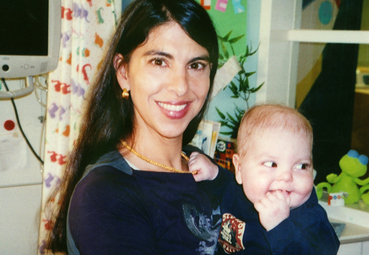 © Photo by Kimberly Forsythe
© Photo by Kimberly ForsytheShine On! Kids is my passion—my ikigai. It’s my joy to take the unacceptable event of losing Tyler and turn it into something positive and powerful to change the lives of kids and their families going through what we went through.
For more information check out the Shine On! Kids official website where you can read more about Tyler and the Beads Of Courage® program.
- The upcoming Executive Fight Night event is to be held on May 26th, 2023 where all proceeds will benefit the Shine On! Kids’ Hospital Facility Dog Program.
- For adorable pictures of their Facility Dog Program visit their official Instagram @facilitydogs_sok.
- For those who want to support Shine On! Kids via direct donation, visit this official donate link.
Savvy Spotlight is a monthly feature introducing foreign and Japanese women at the frontline of what’s successful, contributing, cool, unique and interesting in the city. If you have anyone in mind you would like us to interview, leave us a comment below with your recommendations!












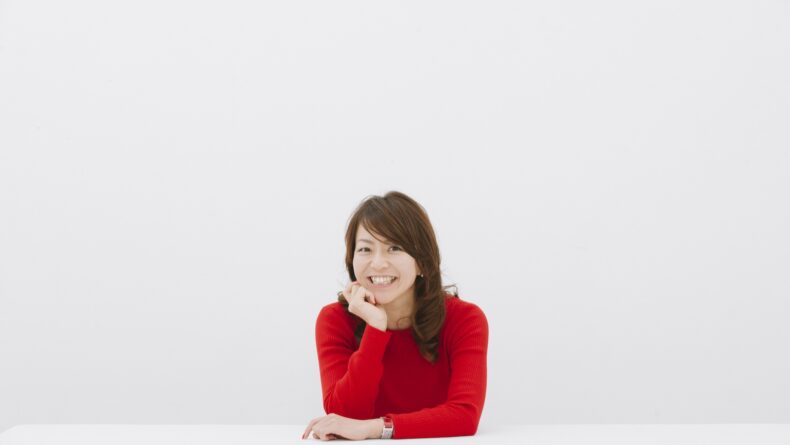
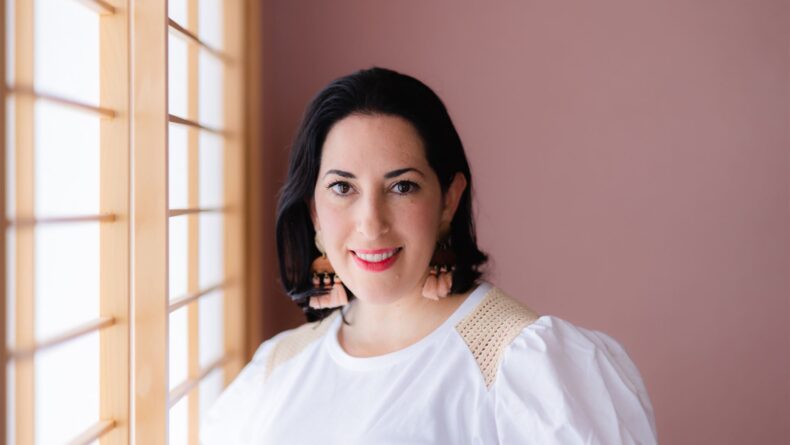

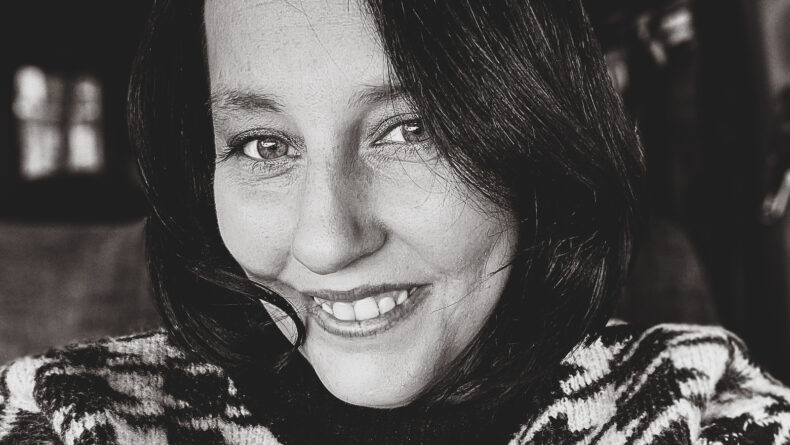
Leave a Reply